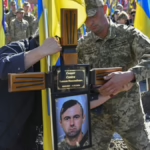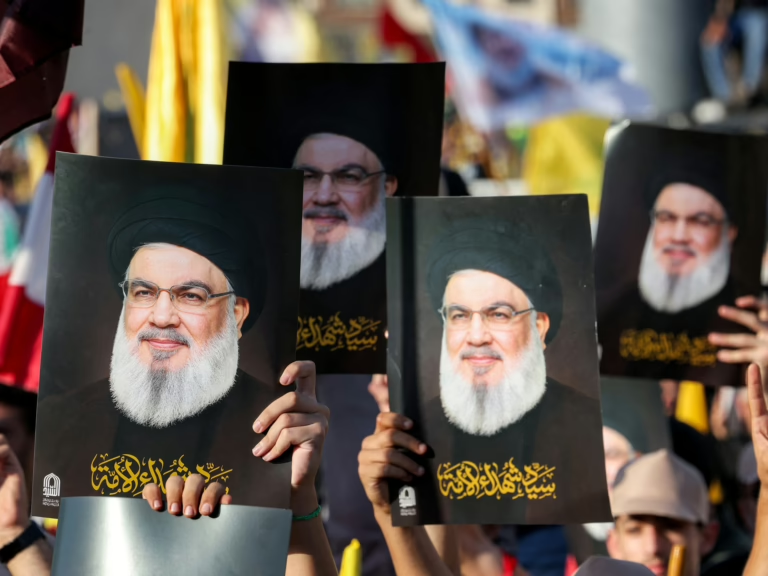The Lebanese administration has endorsed initiatives aimed at disarming Hezbollah, an organization significantly weakened by its recent conflict with Israel.
Published On 28 Sep 2025
One year after the assassination of Hassan Nasrallah in an Israeli airstrike on southern Beirut, Hezbollah’s deputy leader, Naim Qassem, has reaffirmed the group’s refusal to disarm.
Addressing a large crowd gathered at Nasrallah’s gravesite in Beirut, Qassem vowed to preserve Hezbollah’s military strength, despite the significant setbacks the group suffered during its recent confrontation with Israel.
“Our weapons are non-negotiable and will never be surrendered,” he declared, emphasizing Hezbollah’s commitment to opposing any initiatives that align with Israeli interests.
This declaration follows the Lebanese government’s recent public stance advocating for the disarmament of the Iran-supported militia.
In the days leading up to the anniversary of Nasrallah’s death, Lebanon witnessed heightened tensions between Hezbollah loyalists and their adversaries.
Despite explicit orders from Prime Minister Nawaf Salam banning such displays, images of Nasrallah and his successor, Hashem Safieddine-who was also killed in an Israeli strike shortly after Nasrallah-were projected onto coastal cliffs near Beirut.
Thousands, clad in black and carrying portraits of the late leader, converged at Nasrallah’s tomb on Saturday. The event was also attended by Ali Larijani, secretary of Iran’s Supreme National Security Council.
Fatima, a widow who lost her husband in last year’s conflict with Israel, expressed, “Our presence here is a testament that Hezbollah remains resilient.”
Ali Jaafar, a 21-year-old university student, told AFP that he doubted Hezbollah would ever relinquish its arms. “Disarmament is a fantasy cherished by both internal and external foes, but it will never materialize,” he asserted.
Nasrallah’s death on September 27 last year came after Israel deployed bunker-buster bombs on a Hezbollah stronghold in southern Beirut. He had led the organization for over three decades.
Following the October 7, 2023 Hamas attacks, Israel launched a military campaign in Gaza, prompting Hezbollah to fire rockets into Israel in solidarity with Palestinians under siege.
Hezbollah’s capabilities suffered a severe blow when Israeli intelligence detonated explosives hidden inside thousands of pagers used by its operatives, causing numerous civilian casualties, including the tragic death of an eight-year-old girl.
Israel’s extensive aerial bombardment campaign also targeted and eliminated several senior Hezbollah figures, while ground forces invaded southern Lebanese towns and villages, occupying parts of the region.
Although a ceasefire was brokered between Lebanon and Israel in November 2024, Israeli forces continue to occupy Lebanese territory and conduct air raids within Lebanon, resulting in civilian deaths. Israel maintains these strikes target Hezbollah militants.

















